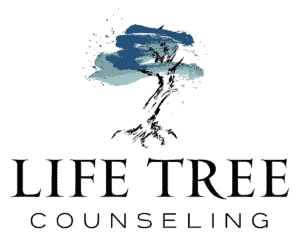Beyond the Individual
ADHD, or Attention Deficit Hyperactivity Disorder, has a reach that extends far beyond the afflicted person. Much as conversation and companionship is spread across each seat at the dinner table, so are the unique challenges and difficulties posed by the disorder “passed around” by loved ones and family members. When the burden becomes too heavy or unexpected, it can be difficult for those with ADHD to cope with – they may feel forgotten, troublesome, or marginalized, while their loved ones feel frustrated and hopeless when it comes to finding a comfortable emotional place to co-exist. Spouses, children, parents, co-workers, employers, and friends are often as affected by this pervasive and common disorder as their affected loved one.
ADHD – Vibrant, Lively, Chaotic
ADHD brings with it the highs and lows of poor impulse control, with a dizzying spiral of behavior that can leave unaffected friends and family a little out of breath at times. ADHD offers side effects through these behavior patterns that can even be seen as benefits: spontaneous humor, an abundance of energy, and never-ending possibilities of things to do. At times, this combination of creativity and carefree attitude can even leave others feeling mundane or boring!
An Internal Obstacle to Success
ADHD symptoms can also create tension, bringing with it behaviors that others struggle to understand and forgive. Common phrases uttered by ADHD sufferers include “I’m sorry, I forgot.” “You didn’t tell me that I had to be there by 4:00.” “I blow up because you ask too many questions.” When these explanations for bad behavior are offered, those in relationships with ADHD-affected individuals incorrectly draw the conclusion that the behavior is intentional.
Relationships, in turn, suffer from a lack of trust due to the inconsistency of behavior. The person with ADHD feels the doubled pain of causing disappointment and feeling as if they are actively forcing a wedge in their relationships. Phrases often heard from fed-up partners and friends include “I am exhausted from carrying all the responsibilities.” “I feel like I have another child. I don’t want to be the only adult in this marriage.” “I’m disappointed so often, I just don’t expect anything anymore.” Both sides of the relationship suffer as a result of the effects of ADHD, which makes it all the more important to diagnose and treat it as soon as possible.
Repairing the Rifts
In order to bring order into this emotional chaos, the ADHD-affected individual should seek out evaluation and diagnosis by a professional. Listing and selecting options for decreasing the symptoms of ADHD will then likely require a visit with a medical professional who is knowledgeable about medicine management. In addition to therapy and medicinal treatment, developing a base of information and awareness of the complexities of ADHD is critical for all friends, family and loved ones who have frequent communication with the person being treated.
Managed medicine and therapy team up to allow the person with ADHD to focus and fully utilize mental abilities on command. With a combination of therapy and medication, ADHD is suddenly transformed from a mysterious peculiarity to an amazing revelation of new capabilities. Formerly impossible tasks, even those requiring great concentration, suddenly become achievable, giving hope and encouragement to those living with the disorder.
Building a New Foundation
Although individuals affected by this disorder are often only prescribed medication, this is not the only path to successfully overcoming ADHD’s obstacles. Although some behaviors of the person dealing with ADHD will be changed by the ability to control focus, many behavior patterns are habits built from a lifetime of struggling with undiagnosed or untreated ADHD and require therapeutic approaches. Consider the messages that an ADHD person hears throughout their life: “You’re so bright. If only you would try.” “Why? I just don’t understand how you could have done that.” “I’m disappointed…again.” These phrases may have resulted in behaviors such as blaming others, defensiveness, and irrational emotional responses, but therapy can help reverse or minimize these reflexive reactions.
Remember, just as the people in relationship with ADHD develop distrust because of fluctuating conduct, the person with ADHD suffers from a history of self-doubt and distrust. These life experiences result in patterns of behavior that will continue to interrupt relationships even though the person is on ADHD medication. The use of therapy to examine behavioral habits and provide constructive support to develop new life management strategies for is critical for successful treatment.
Existing in Harmony
Identifying and understanding the symptoms of ADHD and recognizing resulting behavior patterns are vital not only for a person with ADHD, but those who share their life as well. For the person with ADHD, a combination of effective medication and therapy will likely lead to a life that is manageable, satisfying, and filled with rewarding connections.
ADHD should not be a struggle in solitude but a shared experience of transformation leads to a sense of peace within lifelong relationships.
For information on this topic, please contact Pat Murray at Life Tree Counseling Center, phone 972-234-6634 EXT 304.
Tags:
